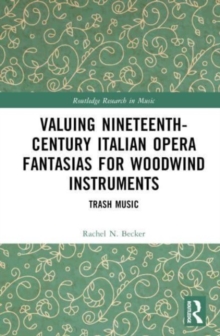
Contemporary Musical Virtuosities PDF
Edited by Louise Devenish, Cat Hope
Part of the Routledge Research in Music series
Description
Contemporary notions of musical virtuosity redevelop historic concepts and demonstrate that our present understanding of virtuosity in western art music has shifted from what seemed, for a time, to be a relatively clear and stable definition. In the field and the academy, lively debates around the definition and/or value of virtuosity have always elicited strong and varied ideas. In the twenty-first century, frictions have emerged between traditional definitions of virtuosity and contemporary practices that emphasise collaboration and blur roles between performers, composers, and improvisers. Contemporary Musical Virtuosities embraces the evolving processes, practitioners, and presentation models within twenty-first century art music.
This edited collection explores recent insights into the experience and role of virtuosity in different contexts, via contributions from an intergenerational group of artists, academics, and artist-academics. Their writing highlights current themes in contemporary western art music and intersecting musical and performing arts genres such as dance, sound art, improvisation, jazz, trans-traditional collaborations, and Australian Indigenous music. It offers models for supporting and recognising a plurality of musical virtuosities typically excluded from traditional definitions and examines implications for musical practice today. Chapters take the form of academic essays, artist reflections, interviews, personal letters, and a manifesto, reflecting the range of approaches and contexts covered.
The collection includes first writings on practices that have been present in the industry for some time not yet documented or examined in detail until now, and thus offers a vision for the future that prioritises inclusive and overlapping practices and processes in music.
Information
-
Download - Immediately Available
- Format:PDF
- Pages:214 pages
- Publisher:Taylor & Francis
- Publication Date:21/11/2023
- Category:
- ISBN:9781000951912
Information
-
Download - Immediately Available
- Format:PDF
- Pages:214 pages
- Publisher:Taylor & Francis
- Publication Date:21/11/2023
- Category:
- ISBN:9781000951912










